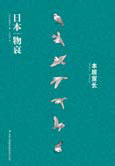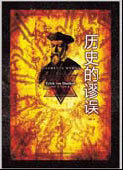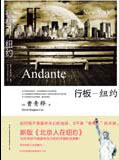Life and Leisure
IN BRIEF (Page 19)
(China Daily)
Updated: 2010-11-19 08:04
 |
Large Medium Small |
Unveiling a crisis' hidden history
Two business journalists, Bethany McLean and Joe Nocera, have written a thorough account of the origins of the financial crisis of 2008.
More than offering just a backward look, All the Devils Are Here: The Hidden History of the Financial Crisis (Portfolio/Penguin) helps explain the most troubling business headlines of the moment, as well as those that are certain to come.
For starters, there is the unfolding foreclosure-paperwork fiasco. Next up will be a clash over whether big banks should be forced to take back billions of dollars in contaminated mortgages they sold. Down the road, people will no doubt confront the danger of the next asset bubble inflating as a result of the Federal Reserve's use of extreme monetary policy to stimulate the economy.
These continuing and future problems are all symptoms of a larger syndrome whose origins McLean and Nocera ably chronicle in their book.
Becoming aware of mono no aware

Japanese literature has always held a huge fascination for Chinese readers but thus far few translated works have been available.
Mono no aware, literally "the pathos of things", also translated as "an empathy toward things", is an important term in traditional Japanese literature and is key to understanding Japan's national character.
The term was coined by Motoori Norinaga (1730-1801) of the Edo period (1603-1868) and was originally used to define the essence of Japanese culture. Norinaga was a pre-eminent scholar of a nationalist movement that sought to remove all outside influences on Japanese culture.
Mono No Aware of Japan (Jilin Press) is the first of Norinaga's works to be translated into Chinese. In it he expounds his theory of mono no aware through a literary criticism of classic Japanese works such as The Tale of Genji.
Beware, the 30s are approaching
For most people, 30 is a watershed age. It's a time of reflection - on the years that have passed and those yet to come. Senses of Crisis You Have to Realize Before 30 (Jilin Press) by Xian Xionghua purports to alert those hitting 30 to the possible crises before they happen.
Written by Xian when he was 30, the author has a simple prescription to avert disaster - be aware, plan, and act.
Play code breaker with mystery man

Who was the author of the Voynich manuscript - dubbed the world's "most mysterious manuscript" - and what does it mean?
Which civilization created the ancient paintings of Nazca in the dry and barren deserts of South America? How did they paint such big pictures? And why?
And where does a giant tunnel complex that stretches more than 4,000 km, 240 meters below the ground in South America, lead?
Read all about the world's abiding mysteries in History Is Wrong by Swiss writer Erich von Daniken, author of Chariots of the Gods. A controversial writer, Von Daniken's works have been translated into 28 languages and been made into documentaries.
Peek into world of law in the Big Apple

Andante New York (Jilin Press) is authored by David Qinghua Cao, a tax lawyer who went to the United States in 1992, and currently lives in Houston.
Set in New York, the book revolves around the experiences of a lawyer, Cao Xiyu, and an actuary, Qi Jiaoteng, from 2002 to 2006, and weaves in parts of their college life in Beijing in the 1980s.
The novel explores the impact of time, space and chance on partings and reunions, death and survival. A film adaptation is in the works.
The Bible as poetry, prose, and drama
Christianity and Literature secularizes the Bible as a literary classic and examines its influence on Western literature. It draws connections between Christianity and poetry and prose as well as novel and drama.
Written by Professor Zhu Weizhi (1905-99), it was first published in the 1940s and puts together his research on the relation between religion and literature.
China Daily - New York Times